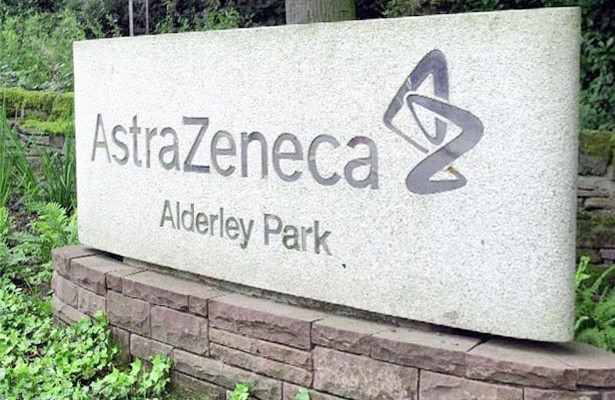- Home
- News
- What’s On
- Activities for Children
- Arts & Crafts
- Autos and Bikes
- Business events
- Car Boot & Auctions
- Charity events
- Churches & Religious
- Comedy
- Dance
- Days out & Local interest
- Education
- Exhibition
- Film
- Gardening & Horticulture
- Health
- Markets & Fairs
- Music
- Nature & Environment
- Spiritual
- Sport
- Talks and Discussions
- Theatre and Drama
- Business
- Local Information
- Jobs
- Deaths
- Charity events
- Contact Us
Decline in profits for AstraZeneca

AstraZeneca could be at risk on two fronts after the pharmaeceutical giant announced its annual results for 2019 showing pre-tax profits falling by 22% to $1.548bn – although total sales jumped by 10% to $24.384bn.
Astrazeneca employs around 4,700 people at Macclesfield, Alderley Park and Speke.
Unveiling the figures, chief executive Pascal Soriot said: “In the first full year of our return to growth, we made good progress in line with our strategy. Results from our new medicines and emerging markets accompanied positive news for patients, most recently including regulatory approvals of Enhertu in breast cancer and Calquence in leukaemia.”

“Our collaborations also progressed at pace, including that with Daiichi Sankyo, while there were several regulatory approvals for new medicines in China at the end of the year, such as Lynparza in first-line ovarian cancer.”
He added: “Driven by a strong team, 2020 is anticipated to be another year of progress for AstraZeneca. We are becoming a better-balanced business, both regionally and through our medicines. This transition is a further step towards improving operating leverage and cash generation.”
“As we accelerate our commitments to achieving our long-term climate-change and decarbonisation targets, we will maintain our focus on executing a strategy centred on science and patients.”
Russ Mould, investment director at Manchester investment platform AJ Bell, said: “Last year was a good one for AstraZeneca, having twice raised sales guidance. This positive earnings momentum has led to a fairly decent set of full year results which highlight its progress including regulatory approval for several new medicines.”
However, he warned: “Unfortunately the coronavirus threatens to disrupt earnings in China, one of its key markets. It is being cautious and assuming there will be an impact to earnings, which is the right thing to do.”
“AstraZeneca has somewhat reinvented itself in recent years after suffering from over-reliance on blockbuster drugs in the past. Losing patent protection on many of these drugs caused a big headache for management and the company’s earnings. It reacted by focusing more on developing treatments that are harder for rivals to replicate. Now in a much better place, AstraZeneca should be able to weather any coronavirus-related storm.”
But he added: “Perhaps a more worrying issue on the horizon is the US political anger on drug pricing. Such pressures are likely to intensify as the US presidential election campaign gathers speed. The pharmaceutical industry seems like an easy target as politicians try and find ways to secure votes. Lowering drug prices would be seen as a major victory in the public’s eyes.”

You must be logged in to post a comment Login